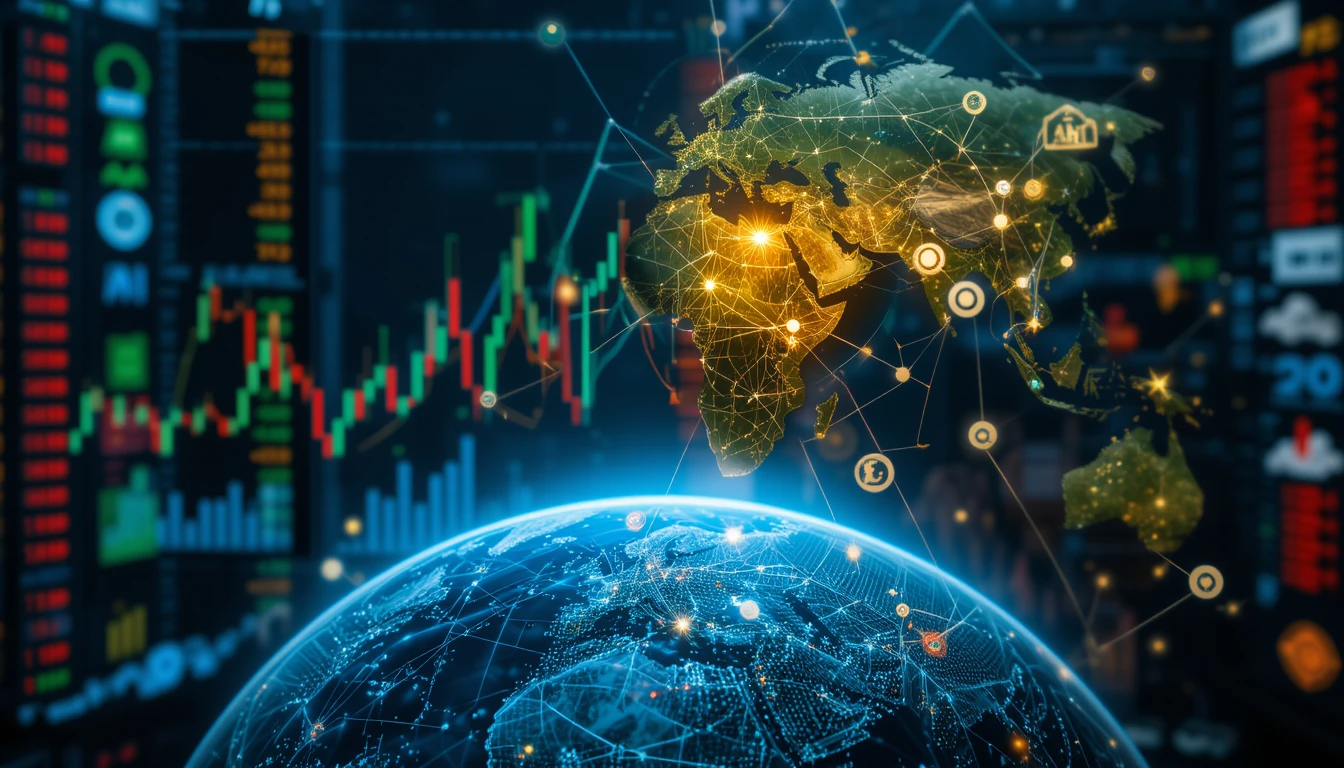The world economy isn’t just bouncing back in 2025 — it’s being reshaped from the ground up. 🌐
Trade is becoming more strategic, AI is redefining how work gets done, and climate goals are no longer optional. This year feels like a turning point — not just in numbers
The global economy in 2025 is not just recovering — it’s transforming.
After years of disruption from the pandemic, supply shocks, inflation, and war-related instability, the world is entering a new economic phase. But this isn’t just about numbers — it’s about a changing world order, shifting priorities, and an evolving relationship between markets, technology, and people.
Let’s take a deeper look into what’s truly reshaping the global economy in 2025.
🔁 From Globalization to “Selective Interdependence”
The era of hyper-globalization is fading. While global trade is still active, countries are now becoming more selective about what and with whom they trade.
- The U.S. is strengthening ties with allies and reducing reliance on certain supply chains (notably China).
- Europe is investing heavily in strategic autonomy, especially in energy and defense.
- Countries like India, Vietnam, and Brazil are stepping up as alternative hubs for manufacturing and tech.
This shift is not about isolation, but rebalancing power in global trade.
🧠 AI and Automation: Not Just a Tech Revolution
Artificial intelligence has become more than a buzzword. In 2025, it’s one of the most valuable economic engines:
- AI-driven automation is changing labor dynamics.
- Emerging economies are using AI for agriculture, logistics, and digital healthcare.
- At the same time, there’s a growing demand for ethical AI regulations and fair access to AI benefits.
This is a double-edged sword: while some jobs are being replaced, entirely new industries are also emerging.
🌿 Climate Economics: Greener, Smarter Growth
One of the biggest stories of 2025 is how economies are investing in climate resilience and sustainability:
- Over $2.5 trillion is expected to be invested globally in green infrastructure this year.
- Carbon pricing is becoming more common — over 80 countries now use some form of it.
- Companies are under pressure to report their environmental impact and reduce emissions.
The environment is no longer just a side topic — it’s central to economic strategy.
📊 Global Numbers — But Uneven Outcomes
- Global GDP is projected to grow by 3.2% in 2025.
- Inflation is stabilizing in many developed countries but remains volatile in some emerging markets.
- Unemployment is down in tech-forward economies but remains a challenge in sectors slow to adapt.
This means that while the overall picture is optimistic, the recovery and growth are still uneven — and that’s important to understand.
💡 Key Takeaways for the Future
- Digital transformation, climate policy, and geopolitical strategy are now core components of economic planning.
- Global economic leadership is shifting from a few dominant players to a multipolar world.
- Individuals, businesses, and governments must adapt quickly to stay competitive.
